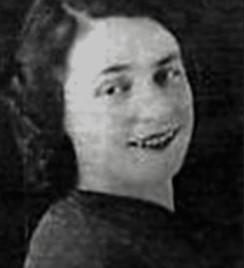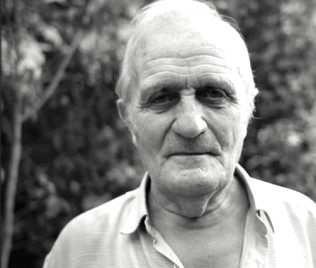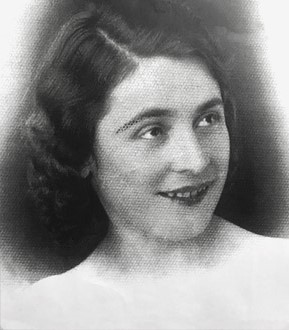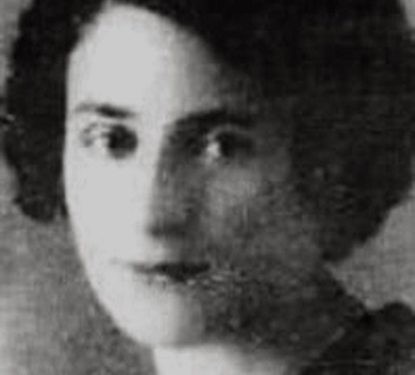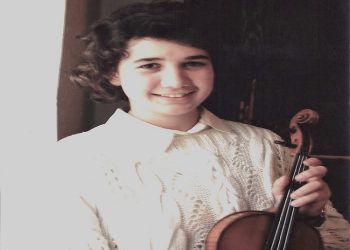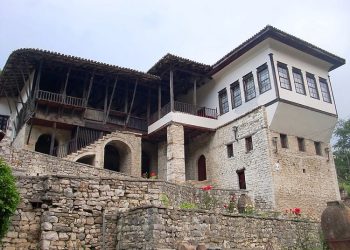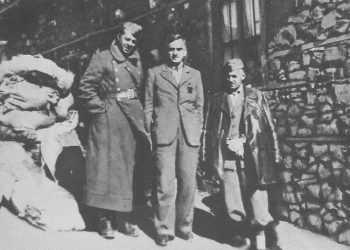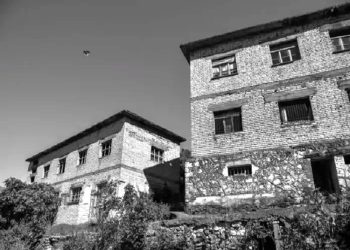Memorie.al / In the suffocating tension of the courtroom, there is always a category, almost negligible, that sits and observes. Mostly, it is the students who go and follow the delicate issues, but they also happen to be casually curious, or who have a distant and not very sensitive connection with the issue. It is possible that today, nothing works as before, but a good part of the events that have become history, exactly inside those cold and dead halls, have come out from third parties, those who, in moments of decision damn, no one has laid eyes on them!
A similar case was that of Islam Spahi. It was the year 1946, when the family had decided that the boy would move to Prizren, to his sister, to complete his secondary studies. Where he lived, in Kukës, there were no schools, so leaving home was almost mandatory. In these circumstances, one ear and one eye was always on the nearest border. His family had always been part of patriotic issues, so even Islam could not escape the curiosity and longing he had, whenever he heard talk about events or people who came from Albania.
He was 15 years old! Big enough to develop these feelings, but not big enough to understand the absurdity of the events of the time. The news of the famous trial, on June 29, 1946, was spread throughout Prizren. Had it not been in the school where Islam taught, he probably would not have been there, but since it was so close, he sought to find a way to enter. The school was empty, while Islam almost begged one of the guards to let him stay in the cold corridor, transformed into a hall. “Sit there, in that corner, just doesn’t let your voice be heard”!
He accepted the order and took his seat. “I still remember the portrait of that graceful girl with a melancholy smile. How much he spoke, the face of that physiognomy! It would be difficult to explain how those beautiful black eyes of a woman secretly show the spark of a heroic soul. Perhaps her destiny was also reflected there: the grace of beauty, combined with the stoic majesty of the martyr. She was a flower in the spring of life, a flower that was plucked by a cruel hand, a flower of the new age, 24-year-old Marie Shllaku.
Born in Shkodër, she went to Kosovo on a patriotic mission. During the war, she carried out anti-fascist activity, while after the Slavic-communist reconquest of Kosovo, she went underground, as one of the main organizers of the movements that led to the famous Drenica uprising, led by legendary heroes; Shaban Polluzha and Mehmet Gradica. I was 15 years old then and I didn’t know if fate gave me the grace that Dostoevsky said; a dear memory of childhood, tear greater role than education of a whole life.
– I don’t know, except that, like every person, I have forgotten many things in life, but the episode I want to tell here, I have never been able to forget. A German proverb says it well: “Forgetting is often more difficult than remembering.” Mary, although a young girl, no longer looked like that! She was caught seriously injured and before she got out there, in that trial, she had gone through the hell of the investigation, which had burned the freshness of her age, which is represented by the portrait I see now.
You had left but that essence that does not burn, that does not go out, that does not defeat: the light of obedience to a religion, to an unearthly love, but sublime; she was now an apostle of Albanianism. To this ideal, she dedicated her youth and now, in the dock, she was waiting to sacrifice her life for it. Her face was ascetic, dry and pale, in extreme contrast with her black hair and eyes.
A slight tear was visible on the shoulder of her white blouse. Opposite, as usual, stood the court, where the figure of the prosecutor stood out. He had first the appearance of a bourgeois, full of health; then of an intellectual, who spoke Albanian eloquently. When I saw him, I thought: how can an Albanian who speaks his mother tongue so beautifully be so anti-national?! His name was Ali Shukriu. Mostly, he directed his questions to Marie. Here is part of the dialogue I remember:
The last words of Marie Shllaku, in the trial against her, in Prizren
Prosecutor: What were you looking for in that uprising?!
Marie Shllaku: The union of Kosovo with Albania.
Prosecutor: What regime do you think about?
Marie Shllaku: For a democratic republic, like that of Noli.
Prosecutor: – Prosecutor: Yes, Fan Noli has praised today’s regime in Albania, with Enver Hoxha at the head, who, as you know, is with us.
Maria remained silent for a while, as if lost in thought, and then, suddenly, raised her head as a sign of defiance, and said aloud:
– “In any case, Kosovo must be separate from the Motherland”! Saying these words, she hit the table hard with her fist. I don’t remember any more, except then it seemed to me that from the crack of that fist, the mountains and the gorges of Kosovo shook and the echo traveled all over Albania.
The four were sentenced to death and executed. They were four stars, which took place in the sky of Albanian glory, and where the night is darkest; there the stars shine the most…! Then, “there is no night that does not dawn, no matter how long it is”! – (Shakespeare). And when this is achieved, then they will be transformed into rays of the sun, of that sun that will forever illuminate the united ethnic Albania.
The beginning of 1946, in Kosovo, begins with an unprecedented wave of persecutions and arrests. The black shadows of UDB and OZN spread out and knock house after house, ambush. The reprisals begin, which will remain the bitterest memory in history. Kosovo lived the night of St. Bartholomew, after which many judicial and historical processes will be born, a painful testimony of the time under Yugoslavian captivity.
June 1946, barely a year had passed since the “liberation” from fascism. In the legendary Prizren, the contingent of 27 people was preparing to appear in the dock and, “in the name of the people”, in the so-called “court of the people”, to receive the punishment. It should be noted that after this contingent, which mainly consisted of students and intellectuals, which will be followed later by tens and hundreds of others, also educated and freedom-loving Albanians, groups by groups, will be subjected to “fraternization – the Yugoslav union.
The biggest judicial process, and which aroused the interest of the Albanian masses, is undoubtedly the judicial process of Father Bernard Llupi, Kolë Parubi, Gjergj Martini, Marie Shllaku and many others, who were close associates of prof. Ymer Berisha. The aforementioned process began on June 29, 1946 and ended on July 11, of the same year, which means that it lasted a total of 13 days, not counting the days of the investigation and others. The public prosecutor of this process, as was the rule in every other process, was Ali Shukriu.
The process was held in Prizren. In front of the panel of judges, which consisted of the president of the panel, Dragutin Janjiq, assistant judges were Ismet Mulla and Selajdin Ahmeti. The process-holder was Branislav Kijari. The defenders of the accused were Bozhidar Zulević and Hysamedin Ejupi, Jovo Poznanović and Urosh Gollubović, with the only lawyer, he too, was a Russian left here after the war, Vladimir Znamenski, from Gjakova. On June 29, beautiful Prizren had a day of mourning.
Before the occupier’s jury, in the black bench, sat 27 Albanian accused. They were accused, just because they loved their country, freedom and an ethnic Albania. In a question from an investigator, addressed to Marie Shllaku, that; how long have you been involved in politics, she replied “Yes, I have been involved in politics since early on, if it can be called politics, my love for the homeland, my effort, as far as I know for myself, for an ethnic Albania, united with its detached parts, Kosovo and Chamery”, and this is why Marie Shllaku – Albanian Joan of Arc was sentenced to death.
WHO WAS MARIE SHLAKU?
Marie Shllaku from Shkodra, occupies an important place in the illegal movement of Kosovo during the War period, 1939-1944. She was born on October 22, 1922, to father, Mark Simon Shllaku and mother, Dile Shllaku. She was a student of Philosophy at the University of Rome. She was unmarried. For a while, she worked as an assistant in Çele e Fishta, and then she was the secretary of Iliaz Agushi and Xhafer Deva. While according to the statements given to the investigator, she claimed that; “I am Albanian, with Albanian citizenship, unmarried, student of Philosophy, I speak and write Albanian, Latin, Italian, French, German, old Greek and a little Serbian”.
Maria was one of those girls, who, with rare courage, went to the mountains, side by side with men, to stop the fragmentation of ethnic Albania. At the same time, she was a close associate of prof. Ymer Berisha. From the very beginning, when he was forced to go underground, he joined the group of Ukë Sadik and Ndue Përleshi. Together with Professor Ymer Berisha, he participated in the founding of the political-patriotic organization “Besa Kombëtare” in Dobërdol. In the Assembly of Dobërdol, she kept the minutes of the meeting. She was in love with ethnic Albania, so she devoted all her work and patriotic activity to it, and in the end she sacrificed herself for it.
He loved Kosovo with his soul, worked for Kosovo, went to the mountains of Kosovo, participated in many military actions against the occupier in Kosovo. In the battle of Siceva, on September 12, 1945, she was seriously wounded, but even in that condition, she had not surrendered. Although seriously wounded, she remained stoic and with all those wounds, she managed to break through the siege. He was sheltered in a village house, where he was later discovered by OZN collaborators. After Marie’s arrest, a new stage of her life began, full of anxiety and severe suffering. At first, she did not admit anything, did not answer any questions that were asked by the investigators.
They were very unhappy, they wanted more from her, they wanted to know about the network of illegals, they wanted fighters, collaborators, their companions and much more. For her, they used severe torturing methods, from the most different ones, and went so far as to promise her that if she would talk, they would release her. Marie Shllaku, even after all these promises, had remained silent, not a single word had come out of her mouth.
The judgment of Marie Shllaku
In the judgment of Marie Shllaku, it was said that she was accused of:
- Marie Shllaku, was the secretary of the Minister of Internal Affairs, Iliaz Agushi. Even after 1945, she remained in Kosovo to work against the new social system.
- She, together with some villagers, had organized them and gone to the mountains to fight against the partisans and against the new system, preventing the National Liberation Army from building popular power.
- During 1944, using previous acquaintances with ballistic gangs, she connected them with Ismail Goran and Ukë Sadik, who then attacked Gjilan, Ferizaj and other places.
- At the beginning of 1945, after going to the mountain, she propagated that the Albanians should not respond to the call to go to the Yugoslav Army, but go to the mountain to wage war against the partisans.
- In January 1945, he participated in the Assembly of Drenica, together with other leaders, such as: Ymer Berisha, Mehmet Gradica, Ahmet Shala, Ukë Sadiku, Shaban Polluzha, Met Dina, etc., where it was decided to attack UNÇ units in Drenica and everywhere else.
- After the Drenica war ended, until she was imprisoned in the fall of 1945, she continued to live in the mountains, encouraging the anti-communist resistance fighters. He participated in many assemblies, where positions were taken to continue the armed resistance, he convinced the people to go to the mountains, to join the fighters of ethnic Albania.
- He participated in the Assembly of Dobërdol, in August 1945, where it was decided that Ymer Berisha should be the political leader, Ukë Sadiku, the military leader, of all the resistance fighters in Kosovo.
- Maintained constant and uninterrupted connections with prof. Ymer Berisha and other resistance leaders.
- He participated in the battles against the Yugoslav Military Units, twice in a row, while in the Siceva war, 11 officers and soldiers of the People’s Army of Yugoslavia were killed (where the accused was also injured).
- He maintained constant contact with the friar of Peja, Father Bernard Llupin, from whom he received money, letters and other orders.
- Marie Shllaku, although injured, took care of the illegal Albanian groups, kept in touch with them, and took care of their withdrawal, outside the borders of the country, committing crimes sanctioned by article 3, points 7 and 12, punishable under article 4, paragraph 1, of the law on criminal offenses against the people and the state.
From all of this, which was said above, prosecutor Ali Shukrija requested that this 23-year-old woman be punished with the most severe punishment: Death by firing squad. In this process, draconian sentences were imposed: 4 people were sentenced by firing squad: Marie Shllaku, Father Bernard Llupi, Kolë Parubi and Gjergj Martini, who on November 24, were executed by the Yugoslav death squad, in beautiful Prizren, while the others , were sentenced to 1-12 years in prison.
It is true that she lived a little, but few lived life as intensely and bravely as she did. Her life and work were devoted to the service of the motherland and freedom, and thus, with her sacrifice, she kept the freedom-loving desires and hopes alive in the soul of the nation, until victory. Memorie.al




